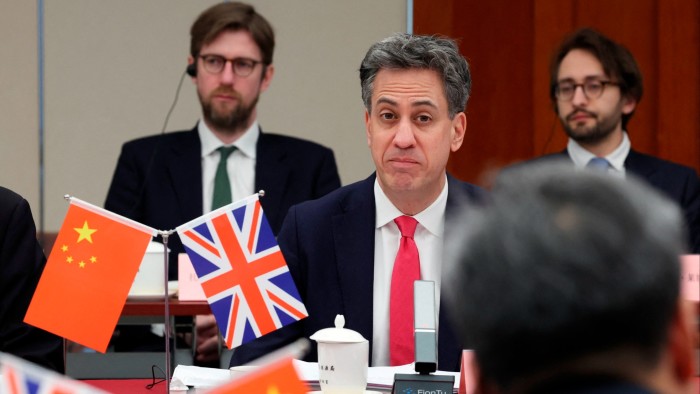The UK’s Dilemma: Navigating Ethical Supply Chains in Solar Energy
As the global solar energy market expands, pressing human rights concerns linked to its supply chains present a significant challenge for the UK government.
Introduction
While the transition to clean energy is gaining momentum, the UK government faces complex issues regarding ethical supply chains, particularly concerning the solar industry’s ties to alleged human rights abuses in China’s Xinjiang region. This situation exemplifies the clash between environmental ambitions and social responsibility.
Government Initiatives Amidst Controversy
On Wednesday, the UK government announced its commitment to ethical practices through a newly established green investment vehicle, Great British Energy (GB Energy). The initiative aims to lead in ethical supply chains by requiring the state-owned company to combat forced labor within its operations.
The new legislation emerges against a backdrop of severe human rights allegations involving the Uyghur population in Xinjiang, a region vital to China’s solar production due to its substantial contribution of polysilicon, the primary material for solar cells.
The Human Rights Challenge
Reports by the United Nations and various research institutions, including Sheffield Hallam University, have raised alarms about forced labor practices impacting the Uyghur community and other ethnic groups in Xinjiang. The Chinese government, however, contends that its policies aim to eradicate poverty and unemployment in the region.
As GB Energy strives to foster a clean energy future, conflicting priorities over ethical sourcing of materials have surfaced, especially during parliamentary discussions on related legislation. An amendment designed to prevent funding to GB Energy over concerns of modern slavery received pushback, yet significant pressure from within the government led to a revised, albeit limited, commitment to ensure compliance with ethical standards.
Comparative Global Responses
In contrast to the UK’s measured approach, the European Union and the United States have taken more assertive stances against products tied to forced labor. The EU is set to enforce a ban on goods produced with forced labor by 2027, while the US has upheld similar prohibitions since 1930, recently intensifying these measures with the Uyghur Forced Labor Prevention Act.
China’s share of global polysilicon production has notably diminished, dropping from 45% in 2020 to 35% in 2022, as companies diversify production in response to international scrutiny. Despite this, the UK’s stance remains cautious, primarily due to its ambitious clean energy targets and a desire to maintain diplomatic relations with Beijing.
Expert Opinions and Future Outlook
Experts emphasize that while the UK’s recent legislative action is a step forward, it does not adequately address the broader issues of forced labor-linked imports. Laura Murphy, a recognized authority on forced labor in Xinjiang, remarked, “The UK is lagging on addressing forced labour-linked imports writ large.” She suggested that without stringent measures, the UK risks becoming a destination for products prohibited elsewhere.
Murphy advocates for a dual approach that aligns human rights improvements with environmental goals, asserting that “addressing human rights abuses and doing right by the climate can go hand in hand.” Such perspectives highlight the necessity for the UK to establish a robust framework that mitigates ethical risks within its solar supply chains.
Meta Description
This article explores the UK’s challenges balancing clean energy initiatives with ethical supply chain concerns linked to human rights abuses in China’s Xinjiang region.


